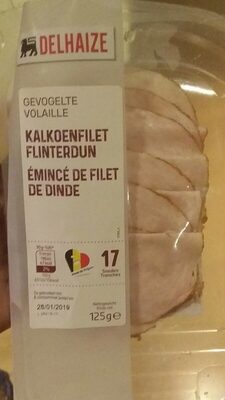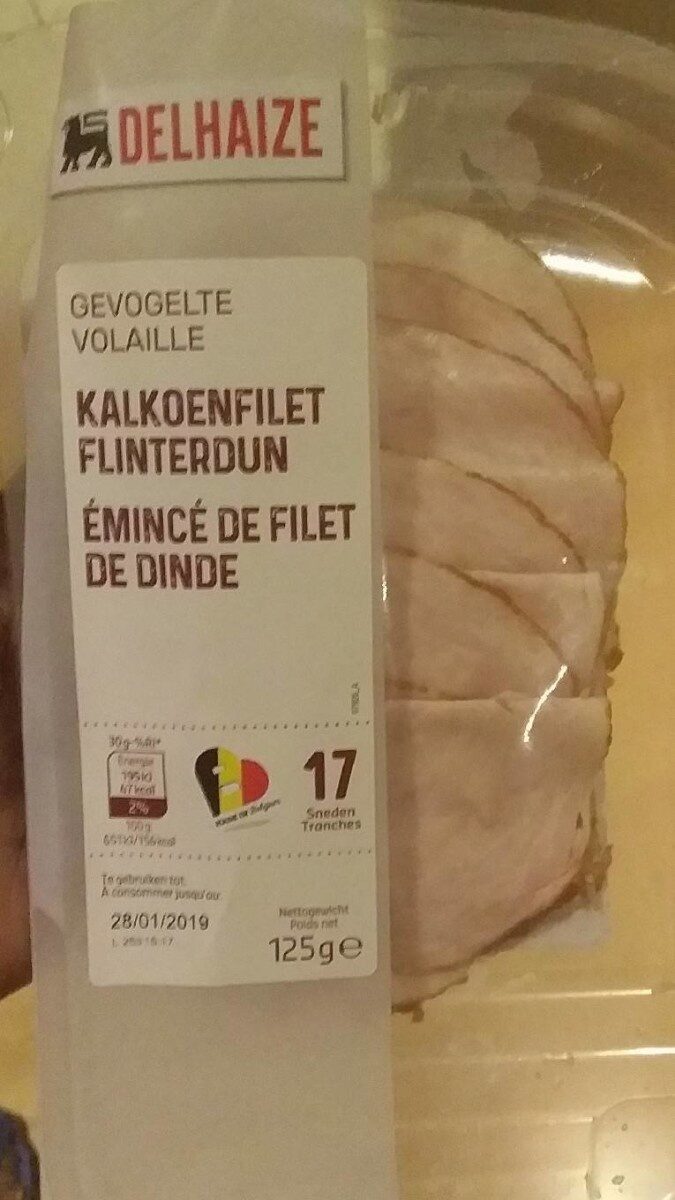Kalkoenfilet - Delhaize - 125 g
This product page is not complete. You can help to complete it by editing it and adding more data from the photos we have, or by taking more photos using the app for Android or iPhone/iPad. Thank you!
×
Barcode: 5400112717127 (EAN / EAN-13)
Quantity: 125 g
Packaging: Plastic, Fresh, Tray
Brands: Delhaize
Categories: Meats and their products, Meats, Prepared meats, Poultries, Turkey and its products, Turkeys, fr:Charcuteries cuites, Poultry hams, Cooked turkey breast slices
Labels, certifications, awards: Nutriscore, Nutriscore Grade C
Traceability code: BE B75 EC
Stores: Delhaize
Matching with your preferences
Environment
Carbon footprint
Packaging
Transportation
Report a problem
Data sources
Product added on by kiliweb
Last edit of product page on by segundo.
Product page also edited by elkegodden, geodata, moon-rabbit, openfoodfacts-contributors, packbot, roboto-app, sebleouf, teolemon, yuka.SHFFUUx2MHdodHdhdnZCdjBTLzV4b0o3NU1hSlhsT0ZKdFV2SVE9PQ, yuka.U3I5ZFNvUW5sTk1GaXNaaTV3SFN4ZTFUeVpuNFRYdTBCdnM0SVE9PQ, yuka.UlBzU0RMOFk5cUlZdDh3RTR4THgxOEF2M3FTdlhIdnJHKzQxSVE9PQ, yuka.YWI4Rkw3c25xOUl2dXZFWjVUT0t5K2d0N0tPUFVFeW9FTEFRSVE9PQ, yuka.YmIwaURMVVByUEpTd3NaandVN3Ardmh5NkpqNFZueTdPdUVQSWc9PQ, yuka.ZVBBY1BvMHJvOFJUb3NRSDhqUFk5ZUozeEpxQUEzdTFkOUFnSVE9PQ, yuka.ZkpnOEM0ODhxY0Zidi9RNW8wamFvOVpreW9PblEwTzhKTllSSWc9PQ, yuka.ZmFkYkhac2pyT1FndGZSdTN6VGFwZGN0eTdxa1QyanVCT0U0SUE9PQ, yuka.sY2b0xO6T85zoF3NwEKvlkZqDsDHpW31bCPlwR2O6OyjDI7pfOwts6_UHqs.










